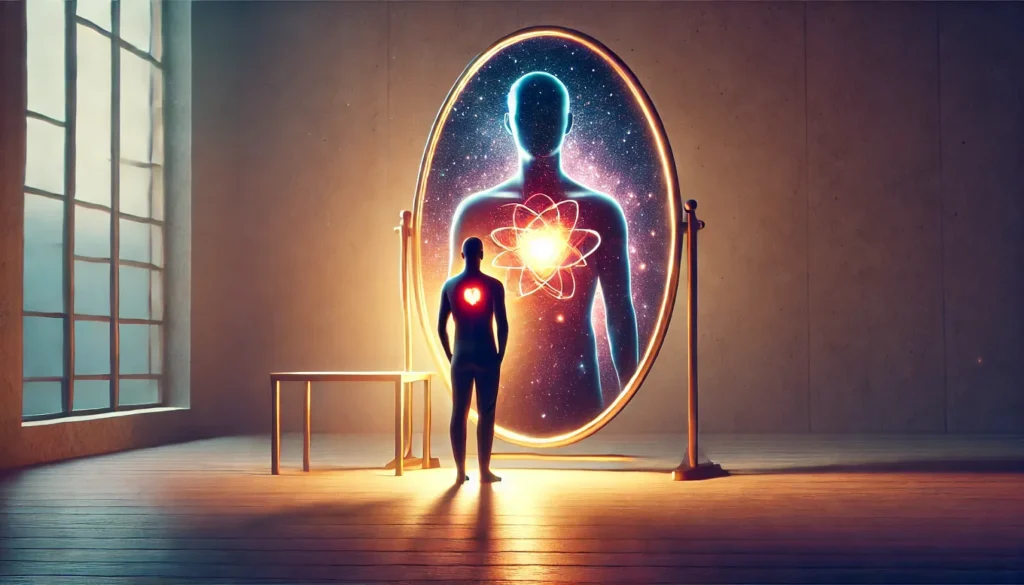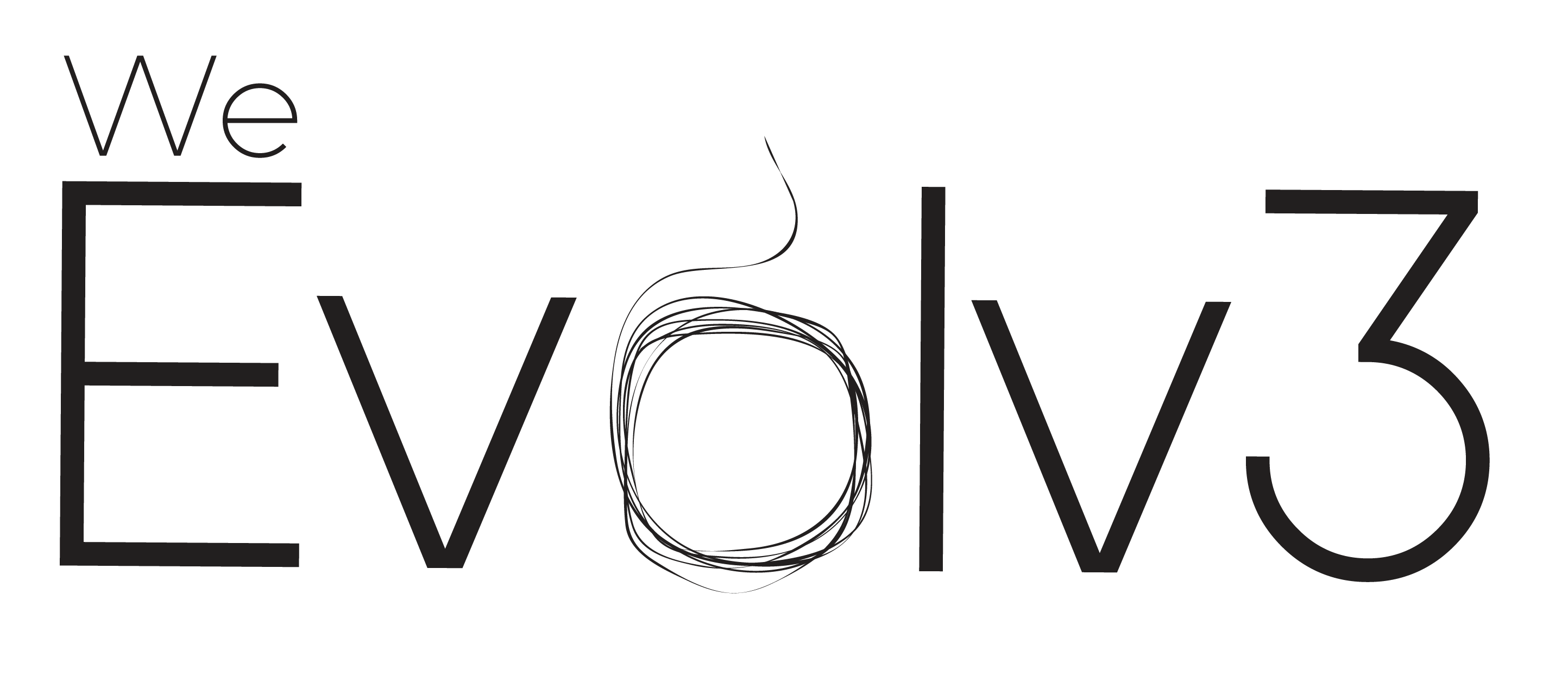
Let’s get something straight: love is not something you find.
That’s the first lie we were spoon-fed, right alongside “carrots help you see in the dark” and “if you work hard, you’ll be successful.”
Love isn’t hidden in some mystical soulmate, buried in a dating app algorithm, or waiting at the bottom of a green smoothie. It’s not missing. You are.
And the biggest scam of all? Convincing you that love is some external thing…something you earn, something you get if you behave correctly, look a certain way, or say the right things at the right time.
We’ve been trained to believe love is conditional, like a gym membership, only available to those who pay their dues. And because of that, we spend our lives chasing it, proving we deserve it, or mourning its absence.
The problem? Love was never meant to be transactional. But, of course, making us believe it is? That is a multi-billion-dollar industry.
The Love Economy: How Capitalism Profits from Your Loneliness
Think about this for a second:
- The global dating industry is worth $9 billion a year.
- The self-help industry rakes in $10 billion.
- The wedding industry? A staggering $130 billion.
That’s billions of $$$ made off one simple idea… You are not complete on your own.
See, if people actually felt whole, do you know what would happen?
- They wouldn’t drop thousands on personal development books convincing them they need to “heal” before they’re lovable.
- They wouldn’t waste years on dating apps designed to keep them swiping rather than finding anything real.
- They wouldn’t pour their self-worth into whether or not a carefully curated Instagram post makes their ex jealous.
The entire system relies on you believing you’re not quite there yet. That you need to become someone, earn something, fix something before you get love.
Because if love were easy, if it were actually yours, then what the hell would they sell you?
The truth is, love isn’t rare – but the belief that it is? That’s worth billions.
Why You Keep Thinking Love is Something to “Get”
Michael Singer puts it bluntly: you don’t need someone else to feel love. It’s already inside you.
But that’s not how we’ve been programmed. We’ve been trained to outsource love. We don’t trust ourselves to feel it, so we attach it to external things – people, relationships, validation, sex.
It’s why we tell ourselves:
- I feel love when they text me back.
- I feel love if I’m chosen.
- I feel love when I look good, act desirable, and make someone else desire me.
That’s not love. That’s dependence disguised as connection.
Love is not a prize for being the “right” kind of person. It’s not a currency that can be given or taken away. And yet, the entire world is structured to make you believe the opposite…because if you realised love was something you already have, then the industries that sell it to you would collapse overnight.
The Science of Emotional Scarcity
The human brain is wired to crave what feels scarce. It’s why people pay absurd amounts of money for designer handbags, NFTs (I’m guilty here), or limited-edition trainers they’ll never wear.
Love is no different.
- When you’re made to believe love is rare, you start treating it like a resource.
- When you treat it like a resource, you get desperate to secure it.
- And when you’re desperate? You’ll accept less than you deserve just to keep it around.
Which is exactly why industries thrive on making you feel like love is something that must be worked for, fought for, or unlocked like a cheat code.
It’s the same psychology that drives gambling. Dating apps? They operate like slot machines.
- Intermittent rewards (occasional matches, messages, validation).
- Algorithmic reinforcement (curated desirability).
- A feeling of perpetual “not enough” (endless swiping ensures there’s always something better).
And just like that, you’re stuck in a cycle – thinking you’re looking for love, when really, you’re just reinforcing the belief that you don’t already have it.
Love is What’s Left When You Stop Resisting
Alan Watts said it best – your natural state is openness, presence, love. But over time, life piles up, and you start to armor up.
Rejection.
Childhood wounds.
Heartbreaks that still sting five years later.
People who told you “I love you” and then walked away.
And with every experience, you build a wall, convincing yourself that love is something that exists outside of you, because to believe otherwise would mean confronting why you don’t feel it now.
Imagine this…
- You hold a clenched fist under a flowing tap.
- The water is love.
- Your tight grip is resistance.
You can’t feel what’s already there because you’re holding on too damn tight. The moment you unclench? Water flows. Love is the same.
Singer takes it a step further, he says that if you’re blocked, it’s you that’s stopping the flow.
Not other people.
Not the “wrong person.”
Not fate.
Just you…resisting the very thing you claim to want.
How to Unblock Love (Without Bullsh*t Self-Help Advice)
The real work isn’t finding love. It’s figuring out why you don’t already feel it.
So ask yourself:
- Where am I still outsourcing love to people, achievements, or appearances?
- What am I afraid will happen if I let love in fully?
- What if I stopped “earning” love and simply allowed it?
Because the truth is, love stops being something to chase the second you stop making it something to prove.
If Love Were Free, What Would Happen?
If people realised they were already whole, what would happen to the self-help industry?
If people felt unconditional love within themselves, what would happen to dating apps?
If people stopped needing external validation, what would happen to Instagram algorithms?
The answer…billions of dollars would disappear overnight.
Which is why love will always be marketed as something outside of you. Because as long as you believe you’re missing something, you’ll keep searching.
And searching is good for business.
So yeah, go ahead. Keep swiping. Keep looking. Keep treating love like it’s hiding under your bed.
Or sit still for a second. Take a breath.
And maybe – just maybe – realise it’s been there all along.
By the way… I love you.
Dino
